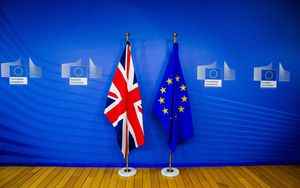(Finance) – At midnight on January 31 three years ago the Brexit. The divorce between London and theEuropean Union continues to cause controversy also given the widespread disappointment in the United Kingdom for the promises not kept after that decision. According to the average of surveys which are routinely conducted, the 57% of voters today they would vote against leaving the European Union, while only 43% would confirm their decision to stay out. This change of attitude has been termed ‘Bregret‘, a neologism created by the crasis between Brexit and regret.
Such regret is also among the ranks of the conservatives who in 2016 voted in favor of divorce. guy Handsa prominent member of the City, chairman and investment chief of private equity firm Terra Firma and a former donor to the Tories, denounced the “business suit disaster” represented by Brexit. “The reality is that it was a losing situation for us and for Europe – he declared -. Europe has lost the most services financial but we got lost too. And the reality of Brexit was that it was just a bunch of complete and utter lies.”
This position is not shared by the current British premier, Rishis Sunakwhich three years after the separation, despite the discontent that emerged from the polls, celebrated i progress made by United Kingdom. “In the three years since leaving the EU, we have made great strides in using the freedoms unlocked by Brexit to address the challenges generational“, argued Sunak who cited “the vaccination campaign” against Covid, “trade agreements with over 70 countries” and the “resumption of border control”. A momentum that “did not slow down” during the first 100 days of the his government, continued Sunak, assuring that “this is just the beginning”.”I am determined to ensure that the benefits of Brexit continue to empower communities and businesses across the country,” he added.
The position of the leader of the Labor opposition is also far from the EU, Keir starmerwho expressed his refusal to reopen a debate at this stage on a problematic hypothesis of returning to the European Union, as well as the hypothesis of returning to be part of the single market or the customs union.
